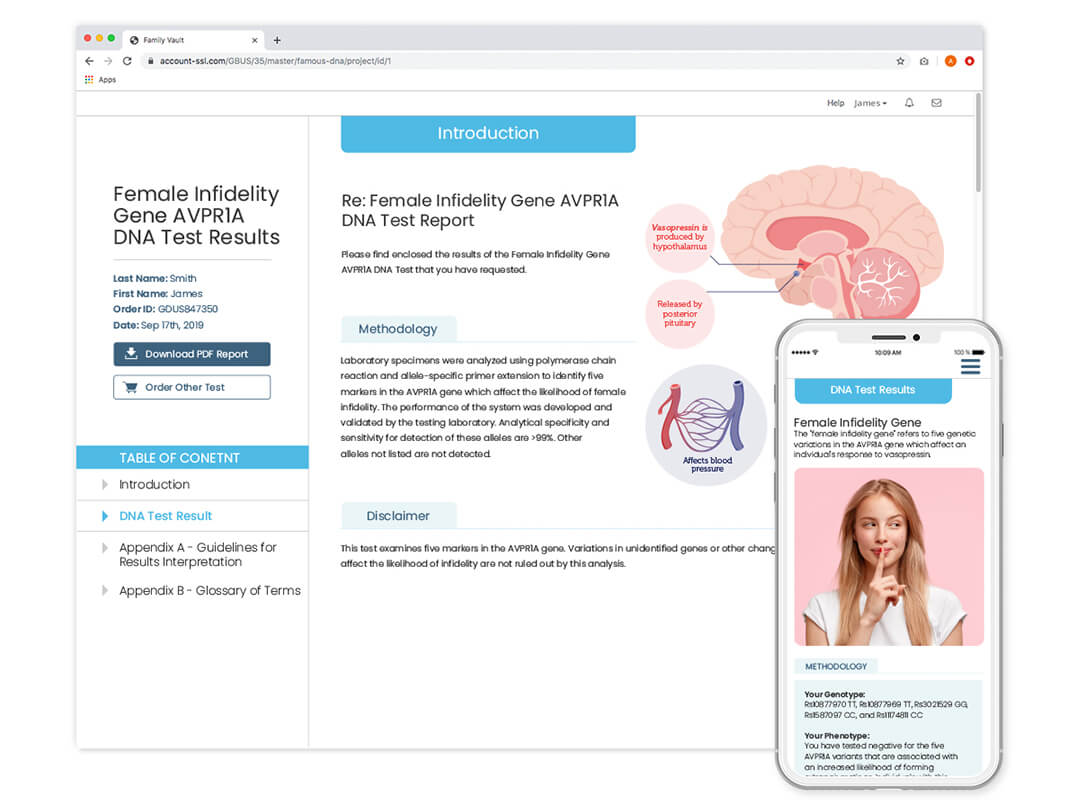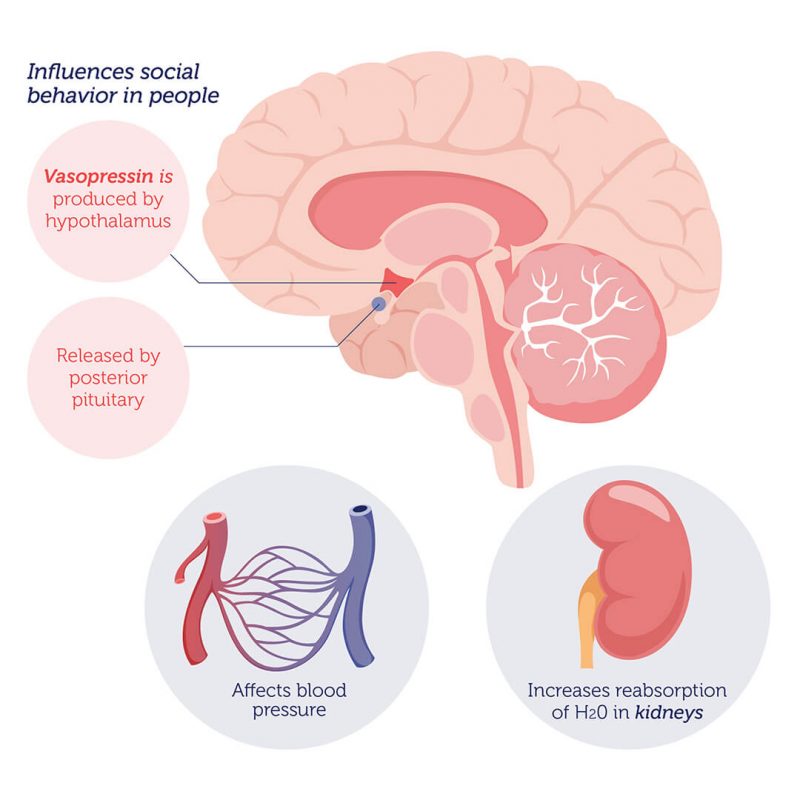Female Infidelity Gene AVPR1A Test
Are you more likely to be unfaithful, because of your genes?
Find out if have one of the “female infidelity” versions of the vasopressin receptor gene.
- Tests five genetic changes in the AVPR1A gene
- Women with one or more of these variants have an increased likelihood of extrapair mating or cheating
- 100% private and confidential online results
- Variants do not influence behavior in men
If you already took the DNA Female Infidelity Gene AVPR1A Test, login to your DNA Access account to access this app.
If you have not taken the DNA Female Infidelity Gene AVPR1A Test, take the DNA test to access this app.
$149, results in 5 to 7 business days








